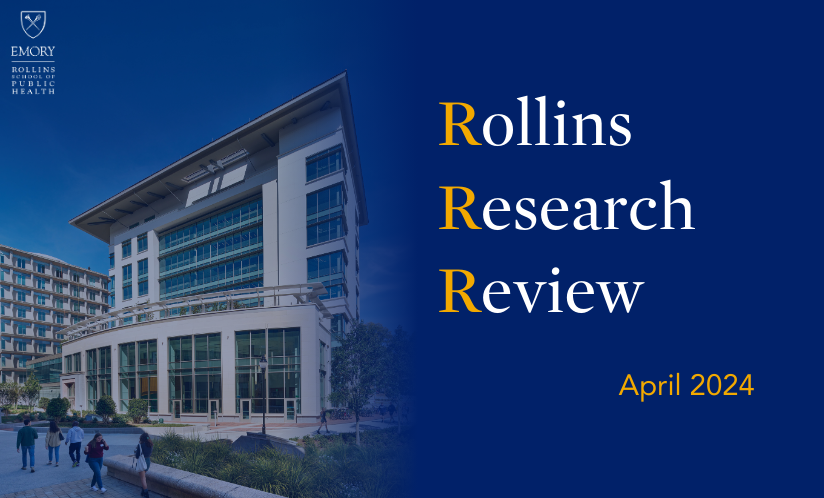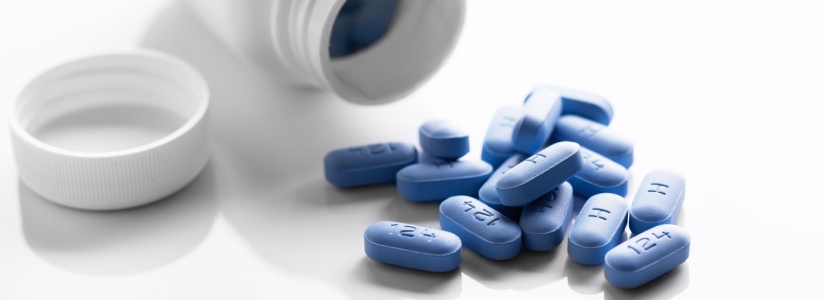Rollins Research Review: WASH-Related Recommendations, Equity in PrEP Uptake, and the Effects of COVID-19 on Health Care Workers’ and Black Men’s Wellbeing

Last month, Rollins researchers authored papers on a wealth of public health topics. Find summaries of a few highlights below.

Organization: The WHO/UNICEF Joint Monitoring Programme for Water Supply, Sanitation and Hygiene (JMP)
Rollins Authors: Bethany Caruso, PhD; Sheela Sinharoy, PhD; Madeleine Patrick; Nicole Stephan
Important Takeaways:
- The WHO/UNICEF JMP partnered with Emory to review opportunities for monitoring gender and prioritizing gender-specific indicators under their water, sanitation, and hygiene (WASH) targets. The authors produced a 60-page report after a multi-year, multi-phase initiative.
- The report recommended adopting 15 priority gender-specific indicators. Some of these include:
- Proportion (%) of individuals who have experienced water insecurity in the last four weeks, by sex and age.
- Sex and age distribution of primary household water collector.
- Proportion (%) of individuals who felt unsafe collecting water in the last four weeks due to fear of being harmed or assaulted by someone, by sex and age.
- The gender-specific indicators identified in this report will enable national and global monitoring bodies to identify gender and age inequalities related to WASH, track changes over time, and provide national governments with the data needed for taking action to address inequalities.

Journal: The Lancet Regional Health
Rollins Authors: Patrick Sullivan, DVM; Stephanie DuBose; Jodie Guest, PhD; Aaron Siegler, PhD
Important Takeaways:
- Although pre-exposure prophylaxis (PrEP) has been approved for HIV prevention in the U.S. for over a decade, uptake of PrEP has been slow, even for populations at higher risk of HIV infection.
- Rollins researchers used pharmacy data to look at the number of PrEP users across different regions, races, ethnicities, and sexes between 2012 and 2021.
- Over the study period, PrEP use went up among all racial and ethnic groups, sexes, and regions. However, the PrEP-to-need ratio (a measure of PrEP usage relative to a population’s HIV risk) showed that PrEP uptake is not equitable across any of those three measures. For instance, PrEP use is lowest in Black and Hispanic populations, who experience the largest share of HIV infections.
- To increase equitable uptake of PrEP and decrease new HIV infections, it is important that interventions focus on getting PrEP to the populations that need it the most.

Journal: PLOS One
Rollins Author: Michael Curtis, PhD
Important Takeaways:
- Studies have shown that the psychological and economic effects of the COVID-19 pandemic disproportionately affected Black men living in the rural South, but not much research has been done about the effects on their social networks.
- In this study, researchers interviewed 17 Black men in rural Georgia to learn about how the pandemic affected their interpersonal relationships.
- All men reported that the pandemic majorly impacted their relationships—often allowing them to improve relationships with family members but causing distress in romantic relationships. Many participants also felt disconnected from their communities during the pandemic.
- These findings highlight the importance of considering men’s relational health in pandemic recovery efforts.

Journal: Journal of the International Association of Providers of AIDS Care
Rollins Author: Caroline Kokubun; Katherine Anderson; Olivia Manders; Ameeta Kalokhe, MD; Jessica Sales, PhD
Important Takeaways:
- The COVID-19 pandemic is a traumatic event which has increased levels of burnout among health care workers, especially those who work in under-resourced settings like Ryan White Clinics—which provide care for under- and uninsured people living with HIV.
- Researchers analyzed qualitative interviews with health care workers at Ryan White Clinics to explore their wellbeing and experiences with trauma-informed care during the pandemic.
- Health care workers reported higher levels of stress, burnout, fear, and challenges with clinic operations, which negatively impacted their wellbeing. While awareness of trauma-informed care practices to increase wellbeing rose during the pandemic, it was not practiced consistently across clinics.
- Implementing trauma-informed care practices in Ryan White Clinics and similar health care settings could help safeguard the mental health and wellbeing of health care workers.